Abhishek Mande
Six rapes in a month and three murders in a span of 24 hours -- this is the new face of Pune, a city that was once a haven for retirees. Abhishek Mande finds out what's simmering beneath the calm surface.
On May 5, around 3.30 pm, a cat crossed Chhaya Ghorpade's path. Chhaya was stepping out of the house with her husband Ulhas to visit her maternal home in Patas, an idyllic village about 50 km away from Pune, their hometown. The simple-minded Chhaya twitched her nose and hesitated. She told her husband to postpone their trip. It was a bad omen for a cat to cross your path. But Ulhas was pragmatic. If they didn't leave immediately, they'd not get there before nightfall. So they left.
Their 15-year-old son Abhishek had dropped out of the plan because he was invited to a friend's birthday party. He'd promised to join them the next morning. When Chhaya and Ulhas reached safely, he must have muttered something about his wife's superstitions.
But Abhishek did not arrive the next morning. Instead, Ulhas received a phone call from one of his brothers informing him that Abhishek was dead. In perhaps the most gruesome murder Pune has seen in recent times, the 15-year-old was beheaded -- his head thrown into a nearby river, and it has not been found so far -- allegedly by three of his 'friends'. The boys were later arrested and sent to remand homes. All of them are under 18.
Officials at the Yerwada police station, where the murder case has been registered, confess that in all their years of service they haven't seen anything like this before. "To think it was done by children (under 18) is horrifying," said one. Senior Police Inspector Deepak Sawant, who has been investigating the case, also said that he was "surprised to see that they were all young boys".
The oldest of them is 17 and lives in a slum in the heart of Pune city, not very far away from the crime scene. He was reportedly cool as a cucumber when the cops apprehended him. An official, shaking his head, said there was no hope for this fellow, "He's on his way to becoming a serious criminal," he said.
The next morning, when newsrooms across Pune were buzzing with activity and every reporter worth his salt was on the field trying to find more about the gruesome murder, in came another story. Rahul Nayar, 24, was shot dead in broad daylight at the Shivajinagar court premises despite the presence of over a hundred police personnel. Nayar was the victim of a gang rivalry. As if this wasn't enough, another murder came to light the same day. Chandrakant Narayan Makar, a fisherman, had been killed and his wife attacked after he got into a drunken brawl in Pimpale Nilakh the previous night.
May 6 was clearly the busiest day for media as well as Pune police after the German Bakery blast of February 14. It was also a day when many saw a face of Pune they had never seen before. Makar's murder showed that the city was simmering and on the edge. Nayar's and Ghorpade's deaths, however, painted a far grimmer picture. If the recent spate of rapes and the terror attacks weren't enough, Puneites now had two new reasons to worry about -- gang wars and juvenile criminals.
Minors as criminals is a rising trend in Pune
Image: A street urchin on a Pune street. (Inset) Abhishek, the victimBetween 2007 and 2009 there have been more than 2,550 juvenile crime cases registered. In 2009 alone 18 underage criminals were booked for murder including a girl. The same year saw over 10 boys under 18 committing rape and six others being booked for molestation.
Yet, the most heartless juvenile crime was committed in 2009 by three boys between the ages of 12 and 18 -- they had attempted to rape and murder a four-year-old girl. After abducting her under the pretext of dropping her home, the youngest of the three boys tried to rape her. His two accomplices joined him and the three tried to crush her to death using a huge boulder. The three boys were reportedly keen on making a career out of crime, and had even styled their hair in a similar manner as if to assert their gang's distinct identity.
Sheila Christian, who heads the National Society for Clean Cities and works in Pune's various slums, suggests that many slum-dwellers want to rise up in life without necessarily having to work for it. "There are many government schemes and a lot of NGOs working in the slums. But most people I've interacted with in the slums take these things for granted. In fact, they expect it of you and the government. On the one hand these people see the glitter of the outside world and want to be part of it but not many want to work towards it," she says noting that dismantling a stolen vehicle and repairing a broken one does not require very different skill sets. It is, she insists, a matter of moral values.
Christian says the IT boom has brought in a lot of money into the city. And as the money came in, values began to go out. "Values have been deteriorating," she says, "I've lived in different parts of this city for over 30 years and I see this city becoming another Mumbai. The population is growing and, unsurprisingly, so is crime."
Her fears are not entirely unjustified. According to police data, the number of daylight break-ins alone has gone up drastically in the last decade. Ten years ago, 142 cases of break-ins were registered but in 2009 the figure had more than doubled to 334.
Christian points a finger at the ragpickers who she says are often part of organised crime rings. "They aren't always interested in the waste around your house. If they see a house empty for a few days they know it is safe to be broken into. Most of these rings are very organised and have the latest gadgets. I have seen instances when the doors and safes are broken into using gas cutters! Across the road from where I stay, entire sandalwood trees go missing overnight. Anything that can fetch some money is stolen. The moral fabric of the city is changing very fast."
Having worked in the slums and seen their functioning very closely, Christian points out the obvious. "These places are hotbeds for growing crime. I am aware that drugs are easily available in the Yerwada slums and that local gangsters support young boys who peddle these things," she says.
Journalists covering the crime beat in the city concur. One of them says that ganglords hire the services of young boys and instigate them into committing a crime: "Unlike grown-ups who are sent to prison, underage criminals get sent to a remand home. These people take kids under their wings and make them do everything they need -- right from petty crimes such as chain-snatching to much bigger ones like bumping their rivals off."
Gang wars: Another grim reality
Image: A languid Pune street. Don't look, but the city is changing fastWhen she was 28, Prajakta Bhosale (name changed on request) shifted from Mumbai to Pune in the hope of giving her children a safer future. A well-to-do banker, Bhosale bought a sprawling apartment in a housing complex on Paud Road and settled in with her husband and a newly-born daughter.
In April, Bhosale's view of Pune being safe was shattered. Metres away from her plush house, members of two gangs clashed. Chaos followed and Bhosale told her husband to stay back at work till things improved. Bhosale is still coming to terms with this aspect of the city she chose to live in. "I always thought these things happen in Mumbai or in the slums. I've lived in both cities and have never seen a gang war in Pune before."
With property prices soaring and the land mafia getting stronger, gang wars and broad daylight shootouts are becoming grim realities of a city that was once considered to be a pensioners' paradise. While the underworld culture is mercifully not as bad as it is in Mumbai, Pune's citizens are shaken.
In March a local moneylender with a dubious past was shot at in a crowded lane along the busy MG Road at around 5.30 pm. Police suspect personal enmity between him and a gangster called Bandu Andekar.
Earlier this year, in January, Kishore Marne, who was part of the notorious Ganesh Marne gang, was killed in a shootout. The suspects belonged to one of the rival gangs. Incidentally, this was not the first time that Marne was attacked. He had survived two attacks earlier. Then in November last year a prominent builder was shot outside his office, supposedly by Ashwin Naik's gang members.
According to media reports, there are over 20 gangs currently active in Pune though police claim that all gang members are "under check".
Poor cop:citizen ratio, lousy infrastructure add to woes
Image: Kiran Moghe, women's rights activistIn all fairness, the Pune police is far overburdened than it should be. According to a response to an RTI query, there is one policeman for every 700 citizens. For a city with a population of over 55 lakh, there are just over 8,300 police personnel. Incidentally, the strength has risen only marginally since 2000 when the force had about 6,400 members.
Women's rights activist and a prominent Pune citizen Kiran Moghe points out that lack of manpower (in the police force) and poor infrastructure are two of the city's primary issues that need to be addressed immediately.
Even as she admits that Pune remains safer than many other cities in the country thanks to its history of women's liberation movement, she insists that some issues cannot be ignored.
"Pune was one of the few places where women first came into public life. Thanks to the activists Savitribai and Jyotiba Phule and Dhondo Keshav Karve among others, we have had a history of women's liberation movement in Pune. But over the last few years a lot has changed. With the city expanding and housing becoming unaffordable, more women travel a lot more than they would like.
"Also, the nature of jobs itself is changing -- women have to report to work and often get done at odd hours. In such circumstances, it is the responsibility of the state as well as society to ensure citizens' safety. And finally, it also doesn't help that Pune has one of the worst public transport systems, which means that at times they have to depend solely upon alternative private transport."
April is the cruellest month
Image: Pune has seen a surge in rape casesMoghe's concerns are justified. In April a young 25-year-old MBA graduate -- not finding any public transport at Hinjewadi -- took a lift from unknown men and was raped in their car in broad daylight. The case was much written about and the prime accused was a well-connected political activist.
A week later, in a span of barely 12 hours, three cases of rape came to light. The first was where two army men raped a 19-year-old girl after beating up her lover and stealing his belongings. Then in Chinchwad, Zakir Jallauddin Shaikh introduced himself as Nitin Patil and got physical with a 25-year-old woman. When he refused to keep the promises of marriage he had made her, she filed rape charges against him. The third case was reported at the Yerwada police station where a 21-year-old girl also claimed that her co-worker Vikram Undare had raped her after promising marriage and offering to help her out financially.
Later, a 22-year-old woman from the Pune market yard area claimed that her neighbour Mallinath Kolte raped her. Kolte was helping her file for insurance claims after she lost her parents in a road accident. The victim is the only earning member of the family and is bringing up her two younger brothers by herself.
Finally, a 40-year-old woman filed a complaint against her son's friend who she claimed had raped her. The friend tricked the lady into accompanying him by telling her that her son was unconscious by the side of a road and raped her in his car.
Looking beyond the stats
Image: Over a month after his death Abhishek Ghorpade's house sports an eerie silenceEven as the cops would like to take refuge behind official figures and point to a downward trend since 2006 -- there were 62 rape cases registered in 2006, 50 in 2007, 55 in 2008 and 53 in 2009 -- Moghe knows the truth lies beyond the statistics.
She draws one's attention to a Pune police circular that prevented people from registering FIRs in local chowkies. This rendered the local chowky almost useless because you had to go to a police station to lodge a complaint.
"While the police were insisting that crime against women has gone down, the truth was that there were fewer crimes being reported. When we interacted with them we told them that the ground reality seemed to tell a different story from the official figures. We asked them to revert to the old system where you could register FIRs in the local beat. A woman who cannot muster the courage to go to a chowky will never go to a police station," she says.
The real need of the hour, Moghe feels, is the presence of a trustworthy, prompt and gender sensitive police force. She says, "Many studies show that very often the police try and dissuade the complainant. In the Hinjewadi case, when it was reported that the victim had returned home, the constable enquired if it was at all necessary to file a FIR since the young woman had now been found!"
B M Alekar, a retiree who lives in Pune's Camp area, agrees with Moghe, adds that Puneites are growing indifferent to crime. "There was a time when people were alert and tuned into what was happening around them. Today everyone is concerned about themselves. The idea of neighbourhood watch is just a temporary phase. Everything goes back to normal weeks after any major incident. A new case comes up and the older ones are forgotten."
From the police's point of view, Ghorpade's case stands closed. They have given up the search for his head. All the rape cases reported in April too are reported as solved. Families of all these victims are now doing the rounds of various courts and reporters are busy looking for the next big story.
There hasn't been any major crime to speak of in the last one month. One hopes it is not the lull before the storm.

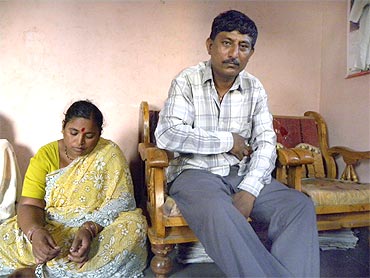
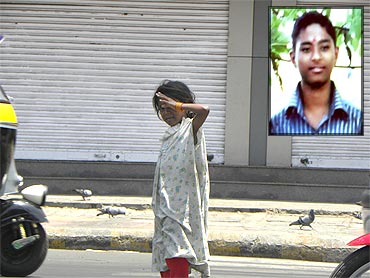
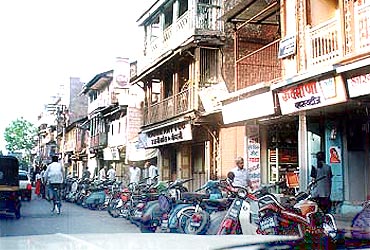
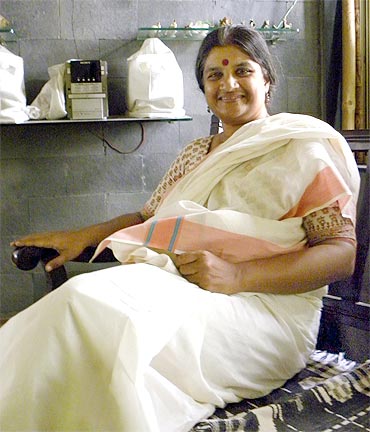
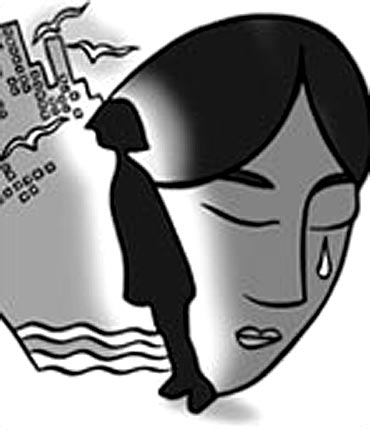
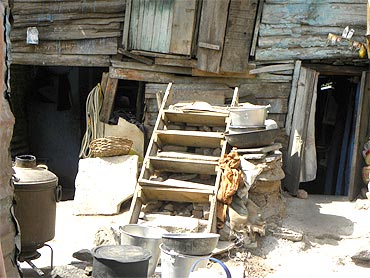
article